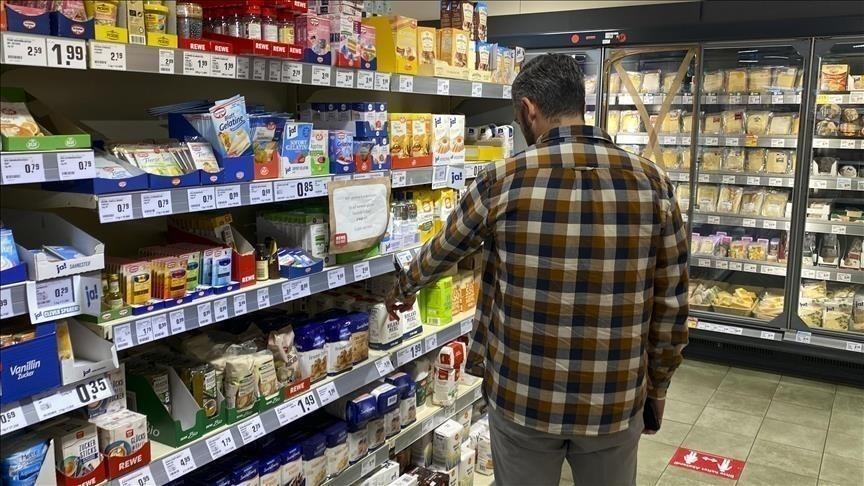

By Anadolu Agency
LONDON
The UK’s annual inflation showed an unexpected decline in August, falling 6.7%, according to data released Wednesday by the Office for National Statistics (ONS).
This drop, the sixth consecutive monthly fall, came as a surprise to analysts, alleviating some of the pressure on the Bank of England to raise interest rates in the near term.
Market indicators are now suggesting a 55% probability of a quarter-point increase in UK interest rates on Thursday, bringing them up from their current 5.25% to 5.5%, a notable decrease from the approximately 80% likelihood given previously.
In July, the consumer prices index (CPI) was at 6.8%, but August saw a slight reprieve as inflation eased, marking its lowest level since February 2022.
Economists had anticipated a modest increase to 7%, but the actual decrease defied these predictions.
One of the key drivers of this unexpected fall in inflation was the slower increase in the cost of food, as reported by the ONS.
This moderation in food price growth contributed significantly to the overall decline in inflation, offsetting the sharp rise in average fuel prices for motorists, which many had feared would push inflation higher.
In August, the prices of food and non-alcoholic beverages rose 13.6% on an annual basis, down slightly from 14.8% in July.
Within this category, there were notable disparities – for instance, sugar is now 55% more expensive than it was a year ago, whereas low-fat milk has seen a 4.4% price increase.
Price inflation for restaurants and hotels also moderated, with prices rising 8.3% on a yearly basis in August, compared to the 9.6% recorded previously (and a 0.2% decrease in prices in August alone).
“Big downside misses across the board on UK inflation, with a large drop in core inflation (+6.2% vs 6.9% prev.) as we had expected (August 2022 core was hot). Very important data for the MPC’s deliberations and holding rates this week looks now a materially under-priced outcome,” said Simon French, chief economist at City investment bank Panmure Gordon.
We use cookies on our website to give you a better experience, improve performance, and for analytics. For more information, please see our Cookie Policy By clicking “Accept” you agree to our use of cookies.
Read More